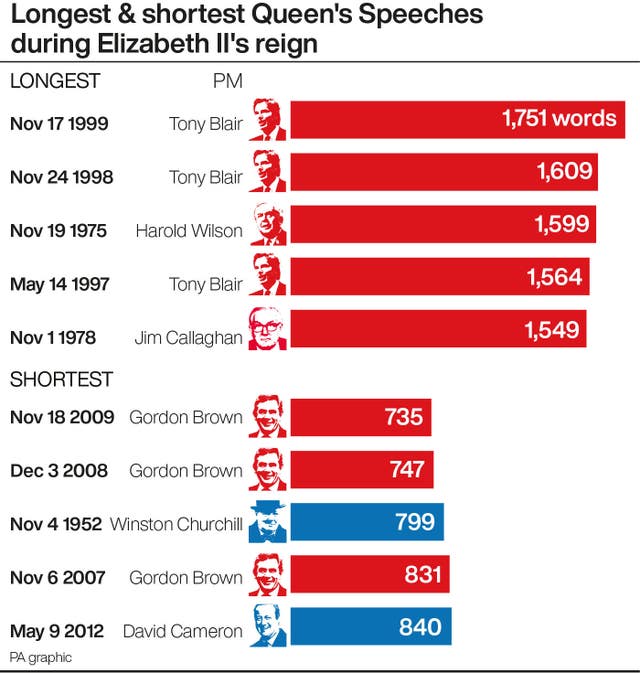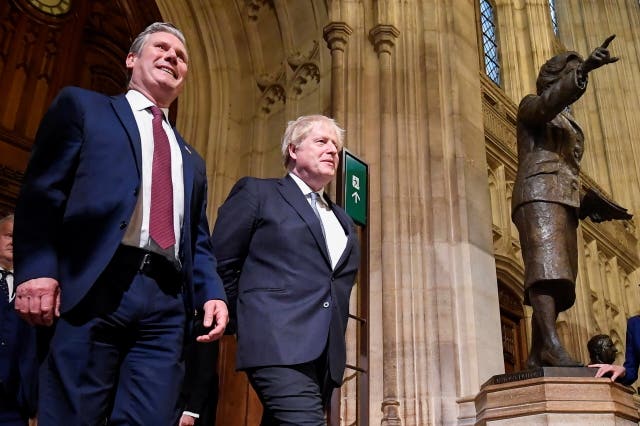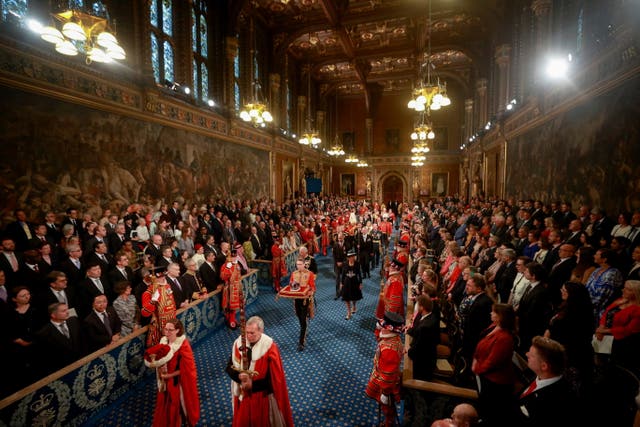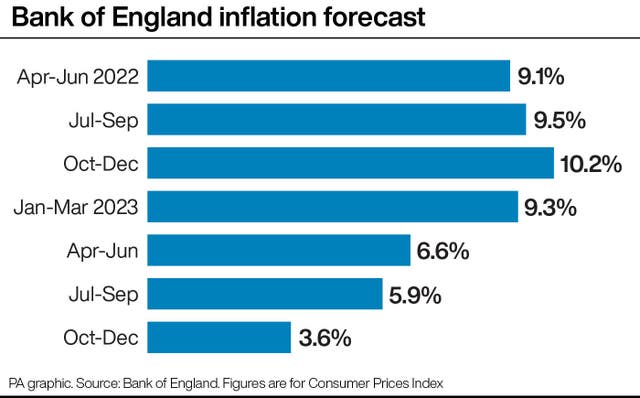Johnson warns Queen’s Speech cannot shield people from cost-of-living squeeze
The Prime Minister acknowledged people were ‘anxious’ and struggling with bills but he could not ‘completely shield’ them from global economic forces.

Boris Johnson warned the Government cannot “completely shield” people from the rising cost of living, as he promised plans to get the country “back on track” following the Covid-19 pandemic.
The Prime Minister used the Queen’s Speech – delivered for the first time by the Prince of Wales – to set out plans for changes to create a “high-wage, high-skill” economy.
But he quickly came under fire on Tuesday for failing to include immediate extra help for households facing spiralling costs, with inflation set to hit a 40-year high later in 2022.
The package also contains a series of measures aimed at taking advantage of the freedoms offered by Brexit – but there was no legislation to implement the Government’s threat to tear up the deal on Northern Ireland’s trading arrangements.
However, ministers insist fresh action could still be taken in the coming weeks if Brussels refuses to agree to significant changes.
With soaring energy bills, inflation forecast to hit 10% and benefits and wages failing to keep up with rising prices, the cost of living is set to dominate domestic politics in the coming months.
The Government highlighted the £22 billion package of help with energy bills, tax cuts and other measures already announced and hinted at further support in future.

“After two years of Covid-19, I know that the last thing people need are further challenges. I know people are struggling with their bills and that they are anxious about the future,” Mr Johnson said.
“While we must keep our public finances on a sustainable footing – and we cannot completely shield people from the fallout from global events – where we can help, we will.
“And over the coming months we will continue examining what more we can do to ease the pressures on hardworking people and families.”

“No country is immune and no government can realistically shield everyone from the impact,” Mr Johnson said.
“It is right that we continue doing whatever we can to ease the burdens people are grappling with now, supporting the hardest-hit with £22 billion of help to address the cost of living and cutting hundreds of pounds off household bills.
“But we must also remember that for every pound of taxpayers’ money we spend on reducing bills now, it is a pound we are not investing in bringing down bills and prices over the longer term.”
He said the Government’s “top priorities” are growing the economy, making streets safe, and supporting the NHS to clear the backlogs built up during the pandemic.

The 38 Bills in the package include:
– Measures to establish a UK Infrastructure Bank, with a capability of £22 billion to spend on measures to support the delivery of net zero emissions by 2050, grow the economy and address regional inequality.
– A Levelling Up and Regeneration Bill will seek to drive local growth and regenerate towns and cities across England, including by enshrining the Government’s levelling up “missions”.
– The Harbours (Seafarers’ Remuneration) Bill aims to deter companies repeating P&O’s mass firing of staff by giving ports powers to refuse access to ferries not paying the UK minimum wage.
– Ministers seek to rip up EU regulations and protections to cut £1 billion of so-called red tape by introducing a Brexit Freedoms Bill to amend inherited laws more easily.

– An Energy Security Bill seeking to transition to cheaper and greener energy while aiming to minimise fluctuating bills, including by extending the price cap beyond 2023.
– A Bill of Rights that will replace the Human Rights Act.
– Legislation to deal with the legacy of the Troubles in Northern Ireland, which appears to be watered down to include immunity from prosecution for only those who co-operate with a new commission.
Liberal Democrat leader Sir Ed Davey said the Queen’s Speech “does nothing to help the millions of families and pensioners facing soaring bills and eye-watering inflation”.
The progressive IPPR think tank said the Government’s plan was merely “cosmetic surgery for an economy facing a heart attack” and “contains almost nothing for families who are struggling to make ends meet”.
Child Poverty Action Group chief executive Alison Garnham said “this speech was a far cry from what struggling families needed to hear today”, offering “no short-term comfort for parents struggling to feed their kids in the face of rocketing prices”.
But the Confederation of British Industry’s Matthew Fell said: “Firms looking for the Government to address the cost-of-living crisis by growing the economy will be encouraged by the ambition in the Queen’s Speech”.
Downing Street defended not using the Queen’s Speech to introduce measures that would help the cost-of-living crisis in the short term, saying ministers must “strike the right balance” having spent £400 billion during the pandemic.
The Prime Minister’s official spokesman said: “It’s an important point for the public to understand that our capacity to inject money is finite and we need to make some key decisions about how we use that funding.”





